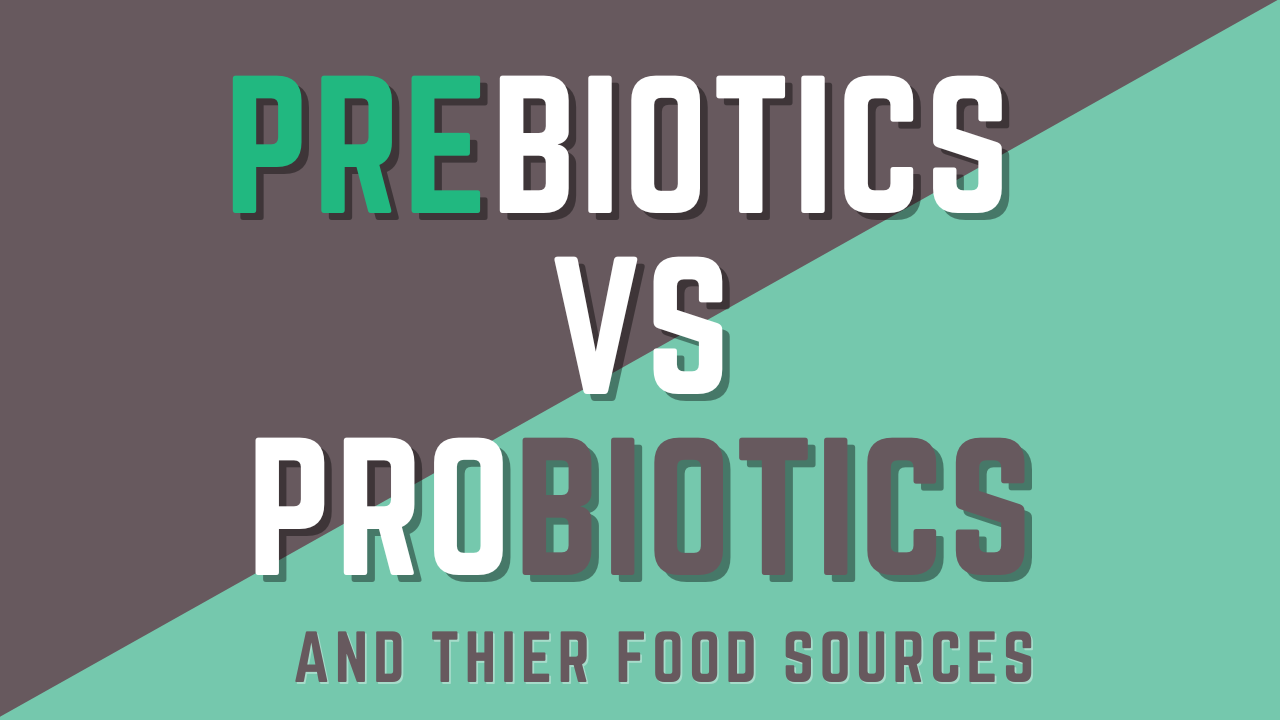When it comes to gut health you must have heard about prebiotics and probiotics. In this Prebiotics Vs Probiotics article, we see the differences between both and also the sources we can consume to add them to our diet.
In simple words, Probiotics are beneficial bacteria, and prebiotics is food for these bacteria. We’ll explain what you need to know about the two more deeply.
What Are Probiotics & Prebiotics?
- Probiotics. These are live bacteria found in certain foods or supplements. They can provide numerous health benefits.
- Prebiotics. These substances come from types of carbs (mostly fiber) that humans can’t digest. The beneficial bacteria in your gut eat this fiber.
Numerous crucial bodily processes are carried out by the gut bacteria, often known as the gut flora or gut microbiota.
You can help guarantee that you have the proper balance of these bacteria to maintain the health of your gut microbiota by eating a balanced diet that includes both probiotics and prebiotics.
Benefits of Probiotics
Research on the effects of probiotics is inconclusive, but it suggests that they may be beneficial in the following areas:
Digestive Health
Numerous studies have found that probiotics may improve digestive health in some people.
A 2017 Cochrane review found that taking probiotics while using antibiotics reduced the risk of antibiotic-related diarrhea by 60 percent.
A 2014 analysis of 24 trials found that probiotics could help prevent the life-threatening disease necrotizing enterocolitis in preterm infants.
Mental Health
A smaller body of research suggests that probiotics may improve mental health.
A 2017 review found that probiotics may alleviate the symptoms of depression, but the authors note that additional studies are necessary to confirm this.
It is possible that probiotics have this effect because there is a link between gut and brain health.
Gastrointestinal Health
The results of studies generally suggest that people with disorders affecting the stomach and intestines may see improvements with probiotics.
For example, a systematic review of trials in people with irritable bowel syndrome (IBS) found that probiotics seem to improve the symptoms of this condition. However, the authors caution that it is unclear how significant the benefit may be or which probiotic strain is most effective.
General Health
The authors of a 2017 review of 17 Cochrane reviews considered the evidence supporting the potential benefits of probiotics.
They found that probiotics may decrease:
- the need for antibiotics
- school absences from colds
- the incidence of ventilator-assisted pneumonia
- gestational diabetes
- vaginal infections, such as yeast infections
- eczema
However, the review did not find high-quality evidence that probiotics can prevent illness, and the authors conclude that more trials are necessary.
Also, read fiber-rich foods to lose weight>>>
Benefits of Prebiotics
Prebiotics are a component of some foods that the body cannot digest. They serve as food for bacteria and other beneficial organisms in the gut.
The benefits of prebiotics have links to the benefits of probiotics. Prebiotics may support a healthy gut, offering better digestive health, fewer antibiotic-related health problems, and other benefits.
There is less research on prebiotics than on probiotics.
As a result, the extent to which prebiotics improve health is unclear. Scientists are not yet entirely sure that they can strengthen the purported benefits of probiotics.
Some research suggests that prebiotics may benefit the body by:
- improving calcium absorption
- changing how quickly the body can process carbohydrates
- supporting the probiotic growth of gut bacteria, potentially enhancing digestion and metabolism
Prebiotics occur naturally in many foods, so there is no need for people to take prebiotic supplements.
Food Sources of Prebiotics
Many of the most common prebiotics are found or derived from foods we eat. Fiber is the unsung hero of a healthy diet and digestive system, and many prebiotics is types of fiber.
Foods that are high in prebiotics include:
- Legumes: Beans, peas, chickpeas
- Cereals and whole grains: Oats, bran, barley, rye
- Fruits: Bananas, berries, grapefruit, olives (+ extra-virgin olive oil)
- Vegetables: Garlic, leeks, onions
- Nuts and seeds: Flaxseeds, pistachios, almonds
Food Sources of Probiotics
Some of the most popular foods with probiotics are fermented foods. This means that they have live cultures, or live beneficial bacteria strains, that either naturally occurs or are added during production.
Some examples include:
- Dairy: Yogurt, kefir, certain cheeses (gouda, Swiss, parmesan, cheddar)
- Non-dairy (check the packaging for added bacteria before purchasing): Yogurt, kefir
- Vegetables: Sauerkraut, kimchi, other pickled vegetables
- Soy products: Tempeh, miso, natto
- Beverages: Fermented drinks such as kombucha
Some of these foods are thought to be synbiotic, meaning that they contain both prebiotic and probiotic bacteria. These include certain dairy and non-dairy yogurts and kefir, as well as certain pickled vegetables.
Also, read 9 Natural Yet Most Effective Gut Health Boosters>>>
The Bottom Line
Diverse and plentiful gut bacteria are key for gut health. Adding a variety of prebiotic and probiotic foods to your diet can help keep your gut in balance and at its ideal functioning. Keep in mind that although there is some research to support the use of pre and probiotics, there is still a lot we don’t know about when and how they can be most helpful.

